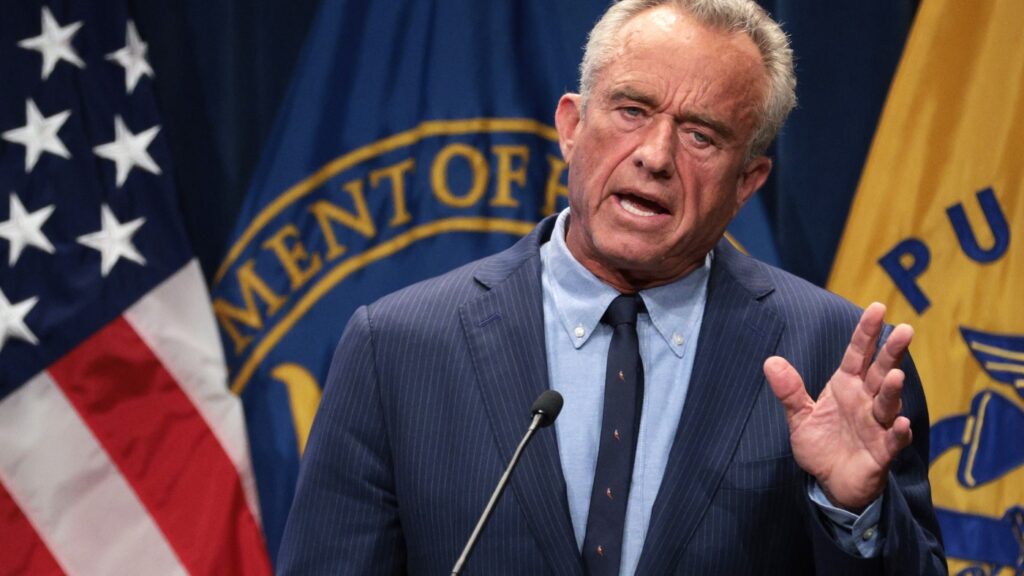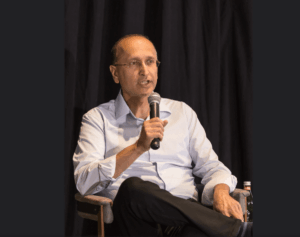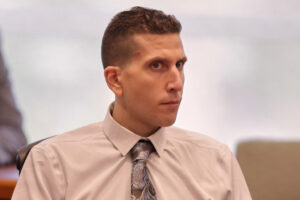
WASHINGTON, DC - APRIL 16: U.S. Secretary of Health and Human Services Robert F. Kennedy Jr. speaks during a news conference at the Department of Health and Human Services on April 16, 2025 in Washington, DC. Secretary Kennedy held a news conference to discuss the recent surge of autism cases. (Photo by Alex Wong/Getty Images)
WASHINGTON, D.C. – Health Secretary Robert F. Kennedy Jr. has announced a sweeping overhaul of the Centers for Disease Control and Prevention’s (CDC) vaccine advisory panel, introducing eight new members just days after dismissing the previous 17-member committee.
Immediate Impact of the Overhaul
On Wednesday, Kennedy revealed the new appointees to the Advisory Committee on Immunization Practices (ACIP) ahead of its upcoming meeting in late June. The move marks an unprecedented shift in the panel’s composition, drawing both support and skepticism from various quarters.
“All of these individuals are committed to evidence-based medicine, gold-standard science, and common sense,” Kennedy stated in a post on X. He emphasized that the new advisors are dedicated to demanding definitive safety and efficacy data before endorsing any new vaccine recommendations.
Key Details Emerge
The newly appointed members include Dr. Joseph R. Hibbeln, Martin Kulldorff, Retsef Levi, Dr. Robert Malone, Dr. Cody Meissner, Dr. Michael A. Ross, Dr. James Pagano, and Vicky Pebsworth. This selection has sparked a range of reactions from public health advocates and policy experts.
“This is a huge win for the medical freedom movement,” said David Mansdoerfer, former deputy assistant secretary for the Department of Health and Human Services during the first Trump administration. “They did everything by the book to put together this excellent slate of appointees.”
Industry Response and Concerns
Public health advocates have expressed concern over the new panel’s composition. “Kennedy did not pick people with strong, current expertise in vaccines,” noted Dorit Reiss, a professor at UC Law, San Francisco, who specializes in vaccine policy. “It tells me that Kennedy is setting up a committee that would be skeptical of vaccines, and possibly willing to implement an anti-vaccine agenda.”
Background Context and Expert Analysis
The ACIP plays a crucial role in setting vaccine policy and crafting recommendations for the national immunization schedule, which influences healthcare providers and insurance coverage. The new appointees have diverse backgrounds, with several gaining prominence during the COVID-19 pandemic for their critiques of governmental measures and mRNA vaccines.
Kulldorff, an epidemiologist and biostatistician, co-authored the Great Barrington Declaration, which questioned lockdowns and other public health strategies. Meanwhile, Malone, known for his early work on mRNA technology, has become a controversial figure for his opposition to COVID-19 vaccines.
By the Numbers
The ACIP is chartered for 19 members. Kennedy’s appointments bring the total to eight, necessitating temporary voting authorization for at least two ex-officio members to achieve a quorum.
What Comes Next
The next ACIP meeting is scheduled for June 25-27. With the current roster insufficient for a quorum, the committee’s ability to vote on vaccine recommendations remains uncertain. This development builds on Kennedy’s broader agenda to reshape vaccine policy in the United States.
As the public health community watches closely, the implications of these changes could resonate across the healthcare landscape, potentially altering the course of vaccine advocacy and implementation in the country.







